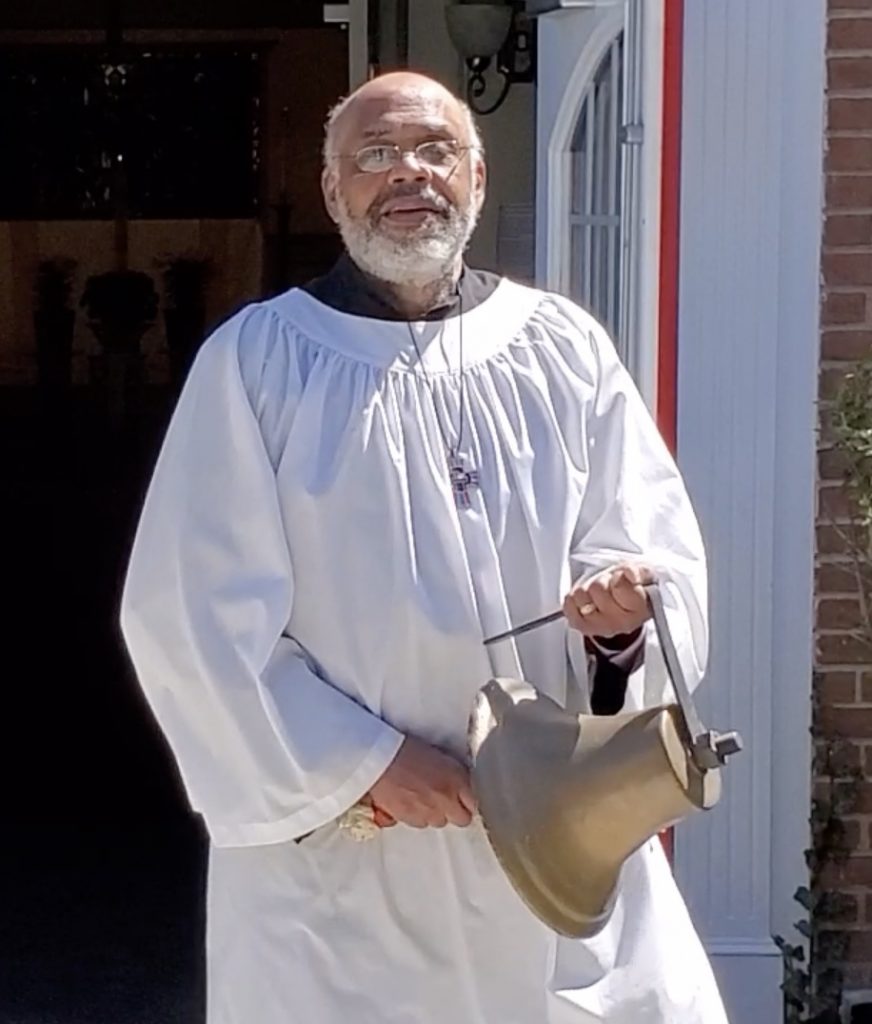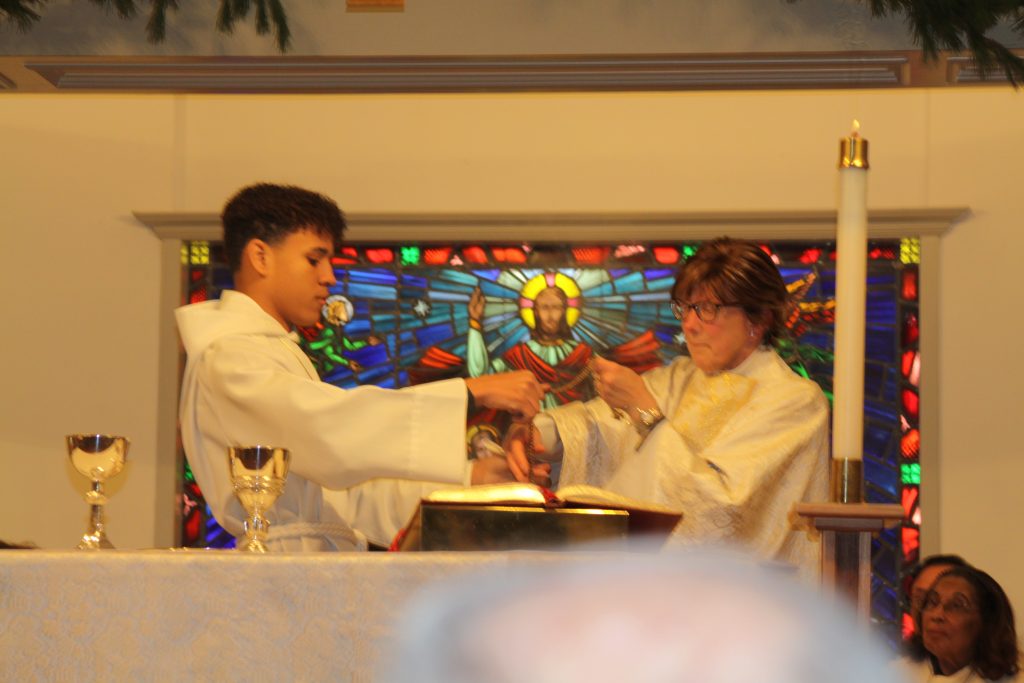Assisting at Worship
Acolytes
Acolytes (altar servers) typically carry the processional cross and altar book, light and extinguish candles, receive the gifts (bread, wine, and collection) and on special occasions may swing incense, ring altar bells, etc. At St. Mark’s this is typically a role filled by our older youth, starting with simpler tasks and gaining responsibility as they build maturity and experience.
Recognizing the Acolyte of the Year is an annual tradition at St. Mark’s typically awarded in the spring at the end of the program year.
Chalice Bearers/Eucharistic Ministers
Chalice-Bearers (or Eucharistic Ministers) distribute the wine during a Communion service and assist the priest/celebrant in other ways. This is a role licensed by the Diocese; training is available for anyone who would like to participate.
Eucharistic Visitors
In similar role, these ministers receive a kit containing consecrated bread and wine at the service and bring it to those unable to attend in person due to illness or other circumstances. A short “service” is said together and minister and recipient take the bread and wine together.
Healing Prayer Ministers
Healing Prayer has been available to anyone who feels the need for God’s healing power through the laying on of hands. Each week at our main service, two ministers stand in a quiet corner during Communion for anyone who wishes to request these prayers.
Lectors
Lectors read the appointed Bible lessons for the day (typically a passage from the Hebrew scriptures (the “Old Testament”), a psalm, and an epistle (from the “New Testament”) as proscribed by the Revised Common Lectionary. At a Communion service, the priest (celebrant) reads the Gospel.
Lay Readers
A lay reader is able to lead common worship (other than Communion) in the absence of a priest. This would typically be Morning or Evening Prayer service from the Book of Common Prayer. This is a position licensed by the diocese; training is available for those interested in this role.
Ushers/Greeters
Ushers/Greeters welcome people to the service, help them find seats, distribute leaflets and point visitors towards anything they might need. They also collect the offering and bring it to the acolytes.
Vergers
A verger in the Episcopal Church functions as the master-of-ceremonies, getting people where they need to be and making sure everything runs smoothly. In the age of online worship we have adopted this title for the person who “watches the door” admitting participants on Zoom, helping people mute and unmute themselves, and assisting with other technical functions.





